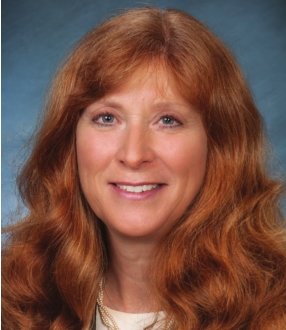
Currently, appointed attorneys are selected in a blind lottery from a series of lists of qualified attorneys. Staying on that list requires attorneys to stay on the good side of the judges, said O’Berry. This is disputed by current judges.
“If you are not moving things along fast enough, you are filing too many motions or whatever, that puts the attorney in a very awkward position with the judge,” she said.
Judges want to see the cases before them move efficiently, without delays. But if a defense attorney is filing too many motions, or arguing too much, this can frustrate a judge by impeding court schedules. As a result, she said, court-appointed attorneys can sometimes back off of zealous defenses.
O’Berry said the dependency causes defendants to see the justice system stacked against them, with the defense, prosecutors and judges colluding with each other.
“It leaves the defendant asking, ‘What about me?’” She said.
She had no hard evidence that this has influenced defense activities in the county. However, a Michigan Indigent Defense Commission report from a year ago, as well as one authored by the ACLU in 2013, found that there were ethically questionable exchanges that occurred between judges and defense attorneys across the state.
And while many legal experts agree such an office could help in delivering necessary legal support, the question is where a cash-strapped county is going to come up with the estimated $6 million it will cost to run the program.
“The county is looking at slashing services in 2018,” said Rebecca Bahar Cook, a Democratic county commissioner who served on the county’s Law and Courts Committee. “I certainly don’t know where the money would come from."

O’Berry said she would pay for the new program with funding from the state judiciary as well as fees assessed to indigent residents who avail themselves of appointed counsel.
“A full-time staff of 25 not including externs and interns would be possible with funding secured from the State and defendant fees,” she wrote in a proposal released earlier this year. “The staff would consist of 21 Public Defenders along with four full-time paralegals. This office would provide resources for improved defense of the indigent and would be independent of the judiciary. The Chief Public Defender would be appointed by the Board of Commissioners.”
O’Berry said the office would also need to employ an unknown number of support staff. In a phone interview over the weekend she lowered the number of employees necessary for the office to “about 20.”
Her campaign manager, Kip O’LeGate, said by email the cost would need “to be close to 90 percent of the Prosecutor’s budget," which he said the national standard.
According to budget data released by Jill Rhoade, the county’s financial services director, the Prosecutor’s Office budget will be just over $5.9 million for this fiscal year. Last year the county spent just over $1.7 million to provide indigent defense. It recouped about $182,000 of that in defendant fees.
Under O’Berry’s proposal the cost to taxpayers, based on LeGate’s estimate, would be about just over $5.3 million.
The issue of adequate public defenders has been brought to the front burner by Republican lawmakers. In 2013, the Legislature passed and Gov. Rick Snyder signed into law measures to create the Michigan Indigent Defense Commission. That commission was empowered to create minimum standards to ensure the state’s low-income residents have access to well trained lawyers to defend them in circuit court.
In June 2015, the commission released its minimal standards for public defenders: Education and training for defense attorneys; standards for conducting a first interview between a client and an appointed attorney; access to testing and investigations in order to detail and create a defense; and the appointment of an attorney for a defendant’s first appearance before a judge.
Former Ingham County Circuit Judge James Giddings said he believes such an office would be helpful, but also notes funding it “is the question, isn’t it?” However, Judge William Collette said he believes the way the courts appoint attorneys today works just fine — with one caveat: He wants to see an increase in the payments made to court-appointed attorneys.
Collette said the court maintains three lists of attorneys. C List attorneys are generally newer lawyers with limited experience, or those who have performed poorly in the past. B List attorneys have some experience, while the A List attorneys have a depth of experience necessary to handle complicated felony cases, such as murder. Right now attorneys on the A and B lists are paid on an hourly rate, which is significantly lower than a private attorney would be paid, while C list attorneys are paid for each motion or appearance in court.
When a defendant shows up in court in need of legal representation, Collette said, an employee of the court randomly assigns the case, based on the severity, to the next attorney on the list. Judges have no role in selecting which attorneys will represent which defendants, he said.
“Often times I don’t know anything about the case, who is involved or such — unless it’s been in the newspaper — until they come before me,” he said.
O’Berry’s Democratic opponent, Carol Siemon, said she likes the idea of a public defender's office, but she does not believe the Prosecutor’s Office should be involved in formulating and pushing that.
“That really should come from the state,” she said, noting that under the state constitution, the judiciary is independent. As a result, any program designed by a legislative body, like the county commission, would ultimately require approval from the state supreme court.
While it might seem odd for a prosecutor to worry about defendants’ receiving adequate counsel, O’Berry said that her duty starts with the court.
“I am first and foremost an officer of the court,” she said. “I want everyone’s constitutional rights protected.”
Support City Pulse - Donate Today!
Comments
No comments on this item Please log in to comment by clicking here